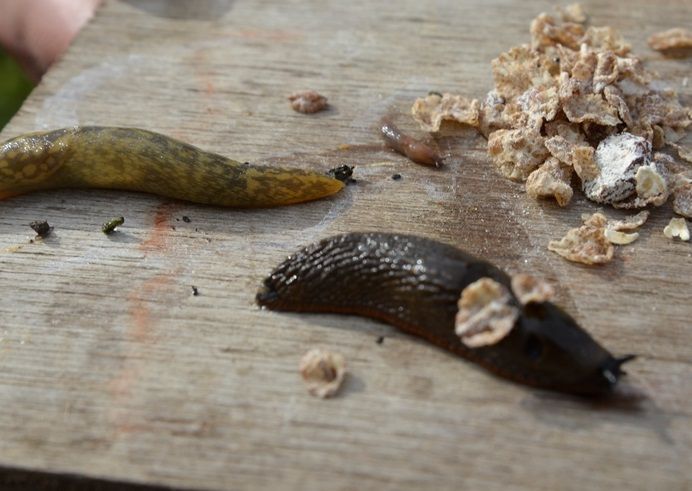
An unlikely new weapon in farming’s battle with the multi-million pound slug menace has been revealed – Swiss-style muesli.
Crop experts at Scotland’s Rural College (SRUC) say the breakfast dish is the best thing to attract the molluscs into traps, which will then allow farmers to gauge whether they need to take further action.
According to figures from AHDB, if slugs were left totally uncontrolled, the creatures would cause annual losses of around £25 million in wheat and £18m in oilseed rape.
Although slugs will not have been enjoying the dry summer, and numbers waiting to feed on autumn-sown cereals and oilseed rape will have taken a hit, farmers are being warned not to be complacent and assume that there will be no slug problems this autumn.
Farmers can assess the risk from slugs for themselves by using slug traps following rain, or drench the area around the trap with water, as this tempts slugs up on to the soil surface at night.
Swiss-style muesli
To get the best from slug trapping, the bait placed under the trap needs to grab the slugs’ interest and to keep them there.
Dr Andy Evans, from SRUC’s Crop and Soil Systems team, says the best option is a dry food bait such as Swiss-style muesli, or chicken feed.
A tablespoon of the bait should be placed under the trap, which can be a slate, fertiliser bag, an upturned flower pot base, wooden board or something similar, Dr Evans said.
If slug numbers exceed five per trap, especially if conditions have been suitable for slugs to be feeding on the soil surface (damp soil and humid nights) then the following winter wheat crop is likely to be at risk from slug damage. Only one slug per trap is enough to put winter oilseed rape at risk.
Dr Evans said: “Slugs can pose a real problem for farmers so it’s important to gauge the size of the problem before taking any further action. Slug traps are an easy, cost-effective way of doing this and there’s no doubt that Swiss-style muesli is the best way to attract them.”
Reducing slug damage
If there is a slug risk, SRUC recommends farmers to create a fine, firm seedbed for the autumn crops, as good soil cultivation can reduce the risk of slug damage, as can deeper sowing of cereal seed (3-4cm).
Some cereal seed treatments primarily used for barley yellow dwarf virus protection can provide protection from seed hollowing by slugs.
As these seed treatments contain the neonicotinoid insecticide clothianidin, this autumn will be the last opportunity for these to be used before they are revoked.
